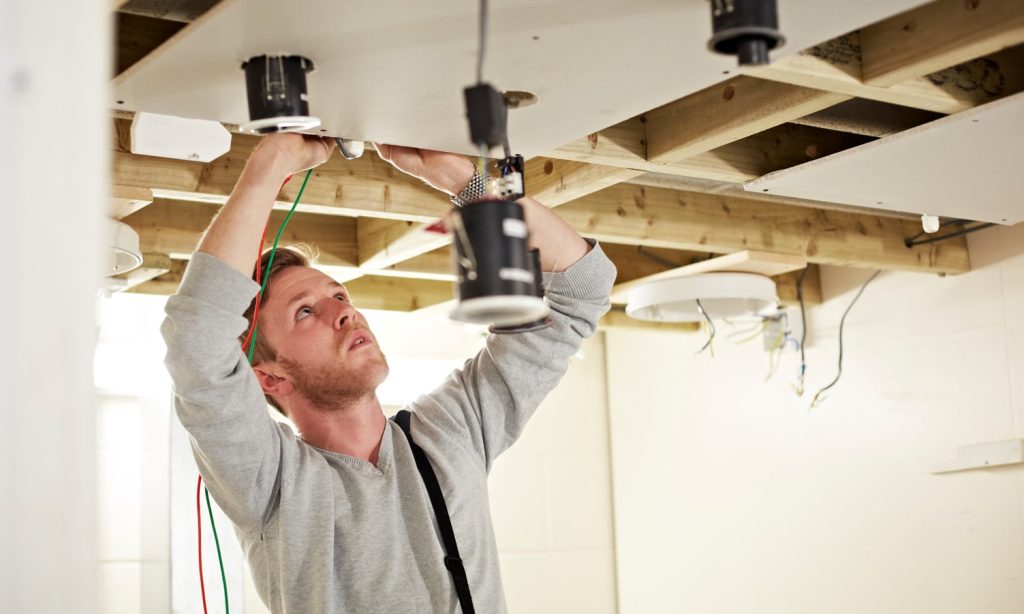
Electricians are highly skilled tradespeople who must complete in-depth theory and practical training, along with a number of assessments before qualifying to work in the industry.
Given the hazardous nature of working with electricity, health and safety is a major consideration within the sector and there are a number of government-approved bodies that electricians can register with to prove they are able to safely and competently carry out work.
What is the minimum qualification electricians need to hold?
To begin working unsupervised in the field, an electrician should complete an accredited training course up to a Level 3 standard.
Those who have trained up to the required Level 3 standard may also want to consider completing their NVQ Level 3 Assessment as some employers may look on this more favourably.
Do domestic and commercial electricians need different levels of qualification?
Domestic electricians will need to complete a domestic installer course that covers topics such as Part-P regulations, wiring regulations, testing, electrical inspection and installation.
Commercial electricians must also complete an electro-technical qualification with a Level 3 NVQ Diploma in Electro-Technical Systems and Equipment.
Do I need to be registered before carrying out electrical work?
While not a legal requirement, it’s common for electricians to register with the National Inspection Council for Electrical Installation Contracting (NICEIC) as a way of proving their competence and high level of skill. NICEIC-accredited contractors must meet the rigorous standards set by the regulatory body.
For electricians who want to work on a construction site, you’ll need to consider applying for a CSCS Card.
Electricians who want the ability to self-certify completed work should look into joining a Competent Person Scheme (CPS). CPS membership allows electricians to self-certify that work meets the latest building regulations, and can help save time and money by removing the need to notify or having to pay Building Control fees.
The JIB Gold Card, sometimes referred to as an ECS Gold Card, is the highest identification on offer in the industry and is an indication that a person has completed a formal industry-regulated qualification to an NVQ Level 3 standard. Electricians who hold a Gold Card can also carry out work unsupervised.
Why would registration be beneficial to me and my customers?
By registering with a regulatory body you are committing to meeting the highest possible standards in your work, proving to both potential employers and customers that you have undertaken all the necessary training and assessments.
For customers, knowing that your electrician is a member of a regulatory body or scheme offers priceless peace of mind that any work carried out will be done so safely, and can be trusted in terms of quality.